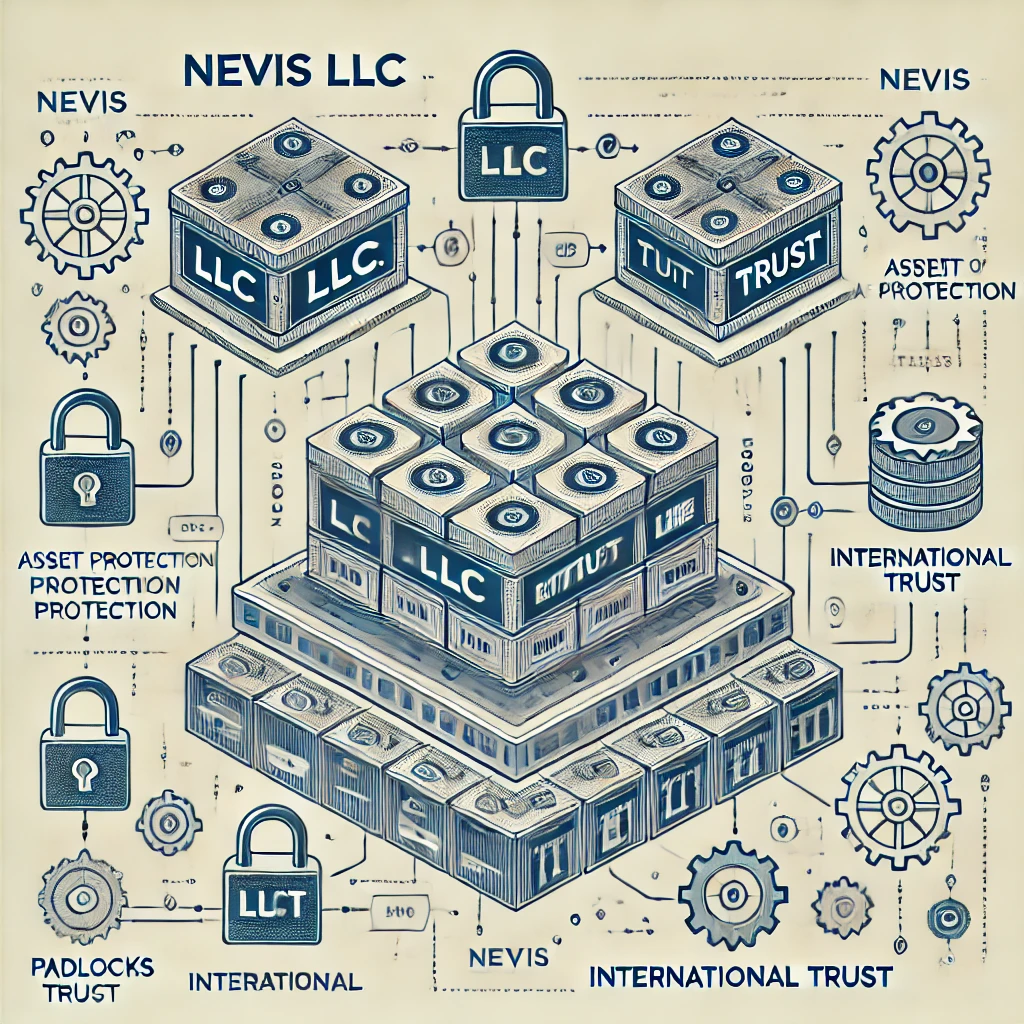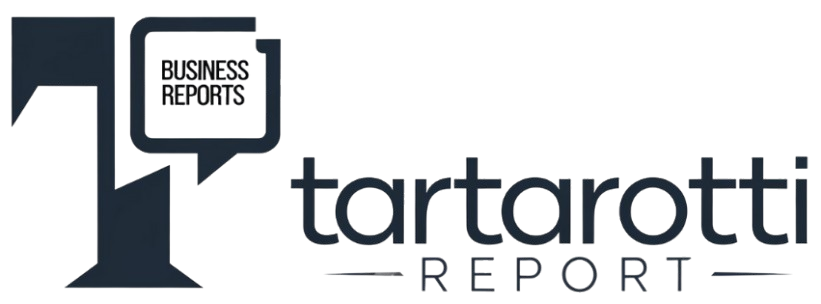Introduction:
In the universe of offshore jurisdictions, Nevis is emerging as an increasingly attractive option for investors and entrepreneurs seeking robust asset protection and financial flexibility. This small island in the Caribbean, part of the federation of Saint Kitts and Nevis, has stood out for offering one of the most favorable environments for establishing holding companies and asset protection structures.
Recent figures show a steady growth in the number of entities registered in Nevis, with an increase of 15% in the last two years. This growth is driven by the unique combination of extremely strong asset protection laws, financial secrecy and a regulatory framework favorable to international business.
In this article, we will explore in depth the benefits and opportunities of establishing a holding company in Nevis, with a special focus on asset protection, succession planning and global investment strategies. We will address the advantages for both non-US tax residents and residents, highlighting how the Nevis structure can be a crucial component in a sophisticated international financial strategy.
Part 1: Ready to Roll 🚀 – Basic Strategies and Practical Actions
Part 1, “Ready to Roll”, offers practical actions and immediate advice for entrepreneurs who need quick and effective guidance.

1. Fundamentals of Asset Protection through Holdings in Nevis
Importance of International Asset Protection
Nevis stands out globally for its exceptionally strong asset protection laws. The Nevis International Exempt Trust Ordinance and the Nevis LLC Ordinance provide an almost impenetrable barrier against creditors and litigation.
Recommended Initial Methods
1.Basic Structuring: Start by establishing a Nevis LLC (Limited Liability Company) or a Nevis International Trust. These structures offer a level of protection unparalleled in other jurisdictions.
2. Asset Segregation: Use the holding company to hold high-value assets, creating a robust legal separation between personal and corporate ownership.
3. Appointment of Local Managers: Consider appointing professional managers in Nevis to increase the legitimacy and operational efficiency of the structure.
2. Effective Succession Planning
Tips for Structuring a Robust Succession Plan
1. Use of Perpetual Trusts: Nevis allows perpetual trusts, offering virtually unlimited succession planning.
2. Implementing Control Structures: Use a combination of LLC and Trust to create a flexible and lasting control structure for future generations.
3. Protection against forced heirs: Nevis laws do not recognize concepts of “forced heirs,” allowing for greater freedom in succession planning.
Key Considerations Aligned with International Standards
– Be aware of the declaration obligations in your country of residence when structuring your succession planning in Nevis.
– Keep up to date with changes in Nevis laws and international agreements that may affect your structure.
3. Global Investment Strategies
How to Develop an Effective Investment Strategy
1. Geographic Diversification: Use the holding company in Nevis as a hub for global investments, taking advantage of the jurisdiction’s tax neutrality.
2. Access to International Markets: Nevis offers an ideal platform for accessing global investment markets with minimal regulatory interference.
3. Structuring Private Equity Investments: Use the flexibility of Nevis LLCs to structure private equity and venture capital investments.
The Importance of Cultural Adaptation and Consistency
– Maintain a consistent investment strategy, but be prepared to adapt quickly to changes in global markets.
– Consider cultural differences when investing globally, taking advantage of the neutrality and flexibility of the Nevis structure.
Part 2: Deep Dive 🤿 – Technical Depth in Advanced Strategies
Part 2, “Deep Dive”, provides in-depth analysis for those wishing to delve into the technical and complex aspects of international finance.

4. Detailed Analysis of Tax and Legal Benefits
In-depth Exploration of Technical Aspects
1.Complete Tax Exemption: Nevis does not impose taxes on income, capital gains, inheritance or donations for offshore entities.
2. Robust Legal Protection: Nevis legislation imposes significant barriers to legal action against assets held in local structures.
3. Short limitation period: Nevis has one of the shortest limitation periods in the world for challenging transfers to trusts (two years), offering rapid legal certainty.
Case Study
Asset Protection for a South American Businessman
One of our clients, a Brazilian businessman, used a combination of LLC and Trust in Nevis to protect family assets. The structure enabled:
– Effective insulation of assets against potential litigation in Brazil.
– Flexible succession planning, bypassing Brazilian inheritance restrictions.
– Global investments with minimal tax burden.
Result: Protection of US$50 million in family assets and estimated tax savings of 20% per year on income from international investments.
5. Implementing Corporate Governance Structures
Recommendations for Efficient Management Tools
1. Compliance Systems: Implement robust compliance tools to ensure compliance with international regulations, such as FATCA and CRS, while maintaining Nevis’ characteristic discretion.
2. Encrypted Document Management Platforms: Use high-security systems for storing and managing corporate documents, in line with Nevis’ privacy laws.
3. Offshore Accounting Software: Adopt specialized accounting systems for multi-jurisdictional offshore structures.
Tips for maximizing the use of these resources
– Establish clear communication and decision-making protocols, minimizing the need for physical interactions in Nevis.
– Conduct regular audits by recognized international firms to maintain the credibility of the structure.
6. Advanced Asset Protection Strategies
Techniques for Identifying and Managing Risks
1. Use of Layered Structures: Create multiple layers of protection using combinations of LLCs and Trusts in Nevis.
2. Implementation of Escape Clauses: Include mechanisms in the structure for rapid transfer of assets to alternative jurisdictions in the event of adverse legislative changes.
3. Asset Compartmentalization Strategies: Distribute assets among multiple structures in Nevis to minimize concentrated risks.
Action Plans for Adverse Situations
– Develop a detailed contingency plan for scenarios of international regulatory pressure on Nevis.
– Establish relationships with service providers in alternative jurisdictions for rapid re-domiciliation if necessary.
7. Innovations in Financial and Investment Structures
Discussion on Emerging Trends
1.Integration with Decentralized Finance (DeFi): Explore the potential of using Nevis structures to participate in DeFi platforms, taking advantage of the jurisdiction’s regulatory neutrality.
2. Multi-jurisdictional Hybrid Structures: Consider combining Nevis entities with structures in other jurisdictions such as BVI or Cayman Islands to maximize benefits and mitigate risks.
3. Cryptoasset Investment Vehicles: Use Nevis’ legal flexibility to structure investment funds specializing in cryptoassets and blockchain.
Tips for Maintaining Flexibility
– Keep abreast of the latest innovations in offshore structures and be prepared to adapt your holding in Nevis as needed.
– Cultivate relationships with experts in emerging financial technologies to stay ahead of trends in estate planning and alternative investments.
Conclusion
Establishing a holding company in Nevis offers a unique combination of robust asset protection, succession planning flexibility and global investment opportunities with significant tax advantages. The strength of Nevis’ asset protection laws, combined with its discretion and favorable regulatory environment, makes this jurisdiction an extremely attractive option for investors and entrepreneurs seeking sophisticated international financial planning solutions.
However, it is crucial to approach the use of structures in Nevis with care and diligence. The global regulatory landscape is constantly evolving, with increasing pressure for transparency and information exchange. While Nevis maintains a strong position in terms of protection and privacy, it is essential to structure and operate entities in this jurisdiction ethically and in compliance with legal and tax obligations in your country of residence.
For those seeking a higher level of asset protection and financial flexibility, a holding company in Nevis, when structured and managed properly, can offer unparalleled benefits. As with any sophisticated financial strategy, the guidance of experts in international law, offshore accounting and estate planning is indispensable for successfully navigating this complex and potentially rewarding terrain.
When considering establishing a holding company in Nevis, remember: the goal is not just tax optimization or asset protection, but the creation of a robust and adaptable structure that can withstand the challenges and seize the opportunities of the ever-changing global financial landscape. With proper planning and careful execution, a holding company in Nevis can be a powerful tool to protect, preserve and grow your assets for future generations, providing peace of mind and financial freedom in an uncertain world.
FAQs
1. Q: What are the typical costs associated with maintaining a holding company in Nevis?
A: Annual costs generally include:
– Annual registration fee: Approximately $200 USD for LLCs
– Registered agent costs: Between $500 and $1500 USD per year
– Management fees (if applicable): Variable, depending on the complexity of the structure
– Compliance and accounting costs: Can range from $2000 to $10000 USD annually
The total annual investment can vary from $3000 to $15000 USD, depending on the complexity of the structure and the services required.
2. Q: How does Nevis compare to other offshore jurisdictions in terms of asset protection?
A: Nevis is often considered one of the strongest jurisdictions for asset protection due to:
– Short limitation period for challenges (2 years)
– Substantial security deposit requirement to initiate proceedings against Nevis structures
– Non-recognition of foreign judgments in many cases
– Laws that strongly favor the asset holder
Compared to jurisdictions such as the Cayman Islands or BVI, Nevis generally offers more robust protection, especially in cases of litigation.
3. Q: What are the main risks of establishing a holding company in Nevis and how can you mitigate them?
A: The main risks include:
– Negative perception of offshore jurisdictions
– Potential changes in international legislation affecting privacy and protection
– Increased compliance costs
– Complexity in managing international structures
To mitigate these risks:
– Keep meticulous records and be transparent with the relevant tax authorities
– Only work with licensed and reputable service providers in Nevis
– Diversify your structures across multiple jurisdictions
– Keep up to date with global regulatory changes
– Implement strong corporate governance practices
4. Q: How can a holding company in Nevis specifically benefit US tax residents?
A: For US tax residents, the benefits are more limited due to strict US tax laws. However, a holding company in Nevis can still offer:
– Significant protection against litigation
– Advanced succession planning, especially useful for families with substantial assets
– Enhanced privacy (although limited due to US reporting requirements)
– Potential for efficient structuring of international investments
It is crucial to consult a US tax expert specializing in international estate planning before establishing any offshore structure.
5. Q: What is the process for transferring existing assets to a holding company in Nevis?
A: The process generally involves:
1. Establishing the appropriate structure in Nevis (LLC, Trust, or combination)
2. Detailed evaluation of the assets to be transferred
3. Drafting transfer documents in compliance with the laws of Nevis and the country of origin
4. Execution of the asset transfer, which may include changes of ownership, bank transfers, etc.
5. Q: What is the process for transferring existing assets to a holding company in Nevis?
A: The process generally involves:
1. Establishment of the appropriate structure in Nevis (LLC, Trust, or combination)
2. Detailed evaluation of the assets to be transferred
3. Drafting transfer documents in compliance with the laws of Nevis and the country of origin
4. Execution of the asset transfer, which may include changes of ownership, bank transfers, etc.
5. Updating records and documentation in Nevis
It is crucial to carry out this process with extreme caution and diligence, considering:
– Tax implications in the country of origin of the assets
– Compliance with anti-money laundering laws and international asset transfer regulations
– Potential reporting obligations in your country of residence
– Strategic timing of transfers to maximize legal protection
It is strongly recommended to work with a lawyer specializing in international law and an accountant with experience in offshore structures to ensure that all transfers are carried out in a legal and tax-efficient manner.
6. Q: How does Nevis deal with the automatic exchange of information (such as CRS and FATCA)?
A: Nevis is a signatory to both the Common Reporting Standard (CRS) and the Foreign Account Tax Compliance Act (FATCA). This means that
– Financial information from entities in Nevis can be shared with tax authorities in other participating countries.
– Financial institutions in Nevis are required to report account information of foreign tax residents.
However, Nevis maintains a strong commitment to privacy within the confines of these agreements. To maximize protection:
– Structure your holdings so as to minimize the need for reporting, where legally possible.
– Keep meticulous records to demonstrate compliance with all relevant reporting obligations.
– Consider using structures that fall outside the definitions of reportable entities, where appropriate and legal.
7. Q: What are the advantages of using a Trust in Nevis compared to an LLC?
A: Trusts and LLCs in Nevis offer distinct advantages:
Nevis Trust Advantages:
– Superior protection against creditors and litigation
– More flexible and long-term succession planning
– Possibility of perpetual trusts
– Greater privacy, as beneficiaries are not publicly registered
Advantages of the Nevis LLC:
– Easier to operate for active business purposes
– Familiar structure for many investors and business partners
– Flexibility in management and distribution of profits
– Potentially simpler for tax compliance in some jurisdictions
Often, a combination of Trust and LLC is used to maximize the benefits of both structures.
8. Q: How does the political stability of Nevis affect the security of assets held there?
A: Nevis, as part of the federation of St. Kitts and Nevis, enjoys considerable political stability. Factors that contribute to the security of assets include:
– Stable democratic political system
– Strong tradition of respect for the rule of law
– Economy heavily dependent on the financial services sector, encouraging the maintenance of business-friendly policies
– Solid international relations, including close ties with the United Kingdom and the United States
However, it is always prudent:
– Monitor political and economic developments in the region
– Consider geographic diversification of assets as part of a comprehensive risk management strategy
– Maintain contingency plans for the rapid reallocation of assets if necessary
9. Q: What are the ethical considerations when using structures in Nevis for asset protection and tax planning?
A: When using structures in Nevis, it is crucial to consider:
– Legal compliance: Ensure that all activities are in strict compliance with the laws of Nevis and the country of residence
– Transparency: Maintaining the necessary transparency with the relevant tax authorities
– Legitimate purpose: Use the structures for legitimate asset protection and efficient tax planning, not for tax evasion or illicit activities
– Social responsibility: Consider the wider impact of aggressive tax planning strategies
– Reputation: Be aware of public perceptions and potential reputational implications of using offshore structures
It is advisable to work with ethical advisors who can advise on the responsible and legal use of these structures.
10. Q: How might global shifts towards greater tax transparency affect structures in Nevis in the future?
A: The global regulatory environment is constantly evolving towards greater transparency. To prepare for future changes:
– Keep abreast of international regulatory developments
– Adopt a proactive compliance approach, anticipating potential changes in reporting requirements
– Consider more robust structures that can withstand increased scrutiny
– Diversify geographically to mitigate risks associated with regulatory changes in a single jurisdiction
– Work with advisors who are up-to-date on global trends in international financial regulation
Remember, the key to the longevity and effectiveness of any offshore structure is adaptability and an ongoing commitment to legal and ethical compliance.
When considering the use of structures in Nevis or any other offshore jurisdiction, it is essential to approach international estate and tax planning with a holistic perspective, balancing the potential benefits with ethical, legal and practical considerations. The expertise of qualified accounting and financial planning professionals is necessary to successfully navigate this complex global landscape.

Member of the IMA (Institute of Management Accountants) – USA
Member of the AICPA (American Institute of CPAs) – USA
Member of AAII (American Association of Individual Investors) – USA
Member of AAA (American Accounting Association) – USA
Member of the FMA (Financial Management Association) – USA
These associations not only attest to Kleyton’s commitment to professional excellence, but also ensure that his knowledge is always at the forefront of international financial and accounting practices.
With a robust academic background, including a Bachelor’s degree in Accounting and MBAs in International Finance and Accounting, as well as in International Business, Kleyton offers a unique and comprehensive perspective on the global business landscape.
Through the Tartarotti Report, Kleyton invites visionary entrepreneurs and executives to connect, explore opportunities for collaboration and, together, successfully navigate the complex world of international corporate finance.







